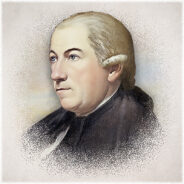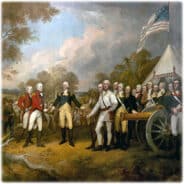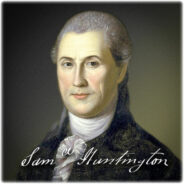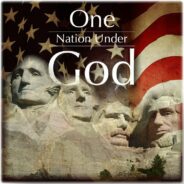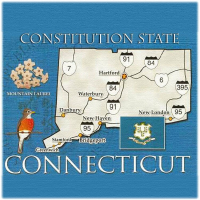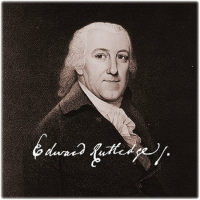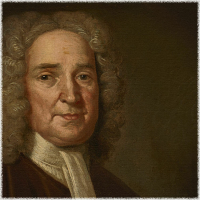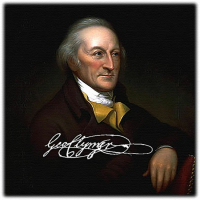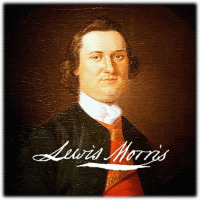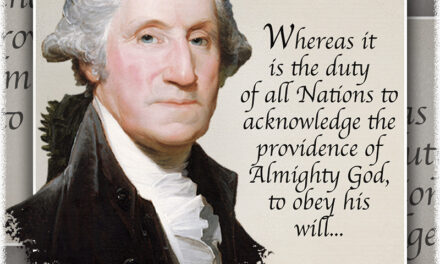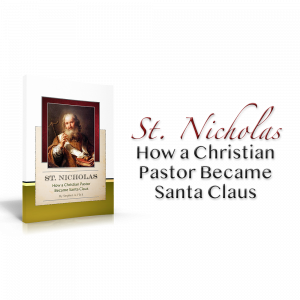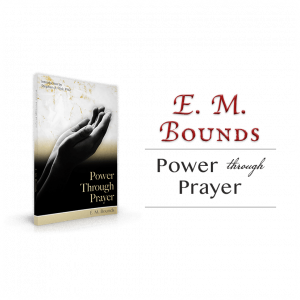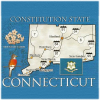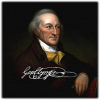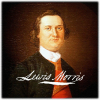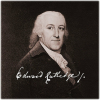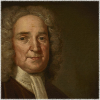March 7, 1778: Fourth Congressional Fasting Proclamation
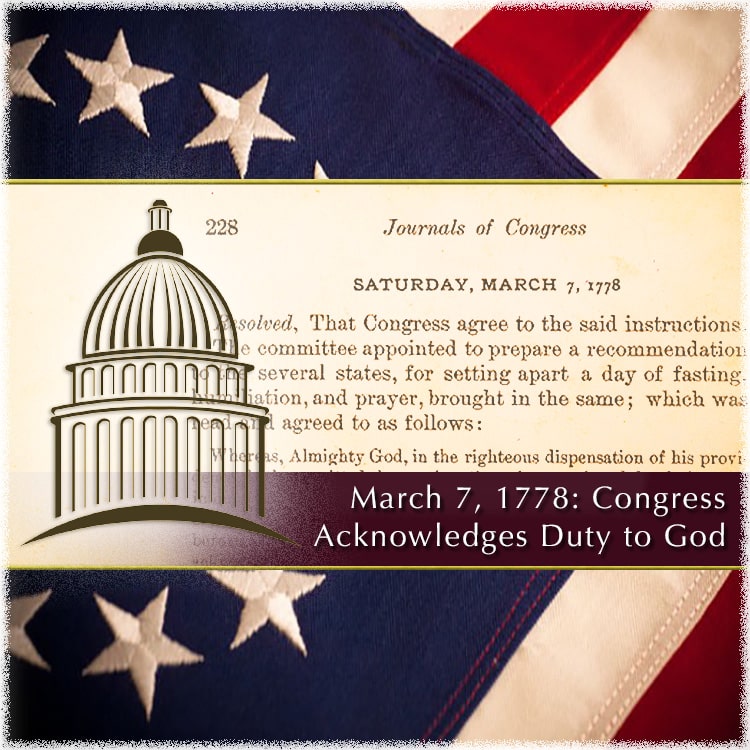
That the Founding Fathers in the Continental and Confederation Congresses issued sixteen proclamations calling the Thirteen States of America to fast, pray, and give thanks to God is a little-known fact to most Americans in the twenty-first century. Determined to rob America of its Christian origin, secularists, atheists, and the irreligious have widely sown misinformation, deceiving those who readily believe whatever they are told.Fourth Congressional Fasting Proclamation
But, the historical facts and records of Congress readily speak the truth to those who are willing to lend an ear. The Second Continental Congress had fled from Philadelphia for fear of attack from the British after the American loss of the Battle of Bradywine (September 11, 1777). After convening for one day at the Court House of Lancaster, Pennsylvania, Congress reconvened at the Court House in York, Pennsylvania from September 30, 1777 to June 27, 1778. During its time at the York Court House, Congress issued spiritual proclamations four and five, both of which were issued under the presidency of Henry Laurens of South Carolina.Fourth Congressional Fasting Proclamation
The subject addressed in this article is discussed at greater length in When Congress Asked American to Fast, Pray, and Give Thanks to God. Christian Heritage Fellowship would be honored to work with individuals, businesses, churches, institutions, or organizations to help communicate the truth concerning the positive influence of the Christian faith by providing bulk pricing: Please contact us here... To purchase a limited quantity of this publication, please click: Purchase here...
Article Contents
Uncertain that America could win its independence from Great Britain, France hesitated at coming to the assistance of the American cause. Only after the surrender of British General Burgoyne (October 17, 1777) following the Battles of Saratoga did it become apparent to the French that support of American independence could be a hopeful prospect in which they could engage themselves against their British enemies. A little more than four months after Burgoyne's surrender, two treaties were signed by representatives of the United States and France, both treaties being signed on February 6, 1778 at the H'tel de Crillon in Paris. The first – The Treaty of Amity and Commerce – officially bestowed upon the United States France's recognition of their independence as a nation, separate from Great Britain; and, this first treaty also established a commercial trading agreement between the two nations. The second treaty – Treaty of Alliance – was an agreement of mutual defense against Great Britain. Received by Congress on May 2, 1778, these treaties were quickly ratified on May 4, 1778, and America gained an important ally in its bid for independence.
Despite the hopeful prospect that an alliance with France would propose to members of Congress, their dependence for success had not rested in mere human or secular security. From the beginning of America's bid for independence when it became apparent that King George III and the British Parliament would not give favorable answer to American expectations, the signers of the Declaration affirmed that they believed the favorable outcome of their course of action was in the hands of the Lord. Their spiritual confidence rested in the care of the eternal God and stated that fact to the world in the final sentence of the Declaration of Independence, below which they penned their names: "And for the support of this Declaration, with a firm reliance on the protection of divine Providence, we mutually pledge to each other our Lives, our Fortunes and our sacred Honor." Their new French ally in no way displayed the confidence in God that Congress had demonstrated from the beginning.
Committee Composes Proclamation
The selection of a committee to write a spiritual proclamation was the most common procedure for Congress. Though on occasion, the Journals of Congress do not record this step, in this instance the selection of a committee and the members' names were notated:
FRIDAY, FEBRUARY 27, 1778
Resolved, That a committee of three be appointed to prepare a recommendation to the United States, to set apart a day of fasting, humiliation and prayer:
The members chosen, Mr. [Daniel] Roberdeau, Mr. [Samuel] Huntington and Mr. [Nathaniel] Scudder.[1]
It may be noted that the committee expressed a sentiment in its recommendation that was contained in the previous proclamation: "that it may please him to bless our schools and seminaries of learning, and make them nurseries of true piety, virtue and useful knowledge." Similar expressions were repeatedly employed in other proclamations. Indeed, following the Revolution, Christian education was a critical interest to Founding Fathers in perpetuating the American Republic.
SATURDAY, MARCH 7, 1778
The committee appointed to prepare a recommendation to the several states, for setting apart a day of fasting, humiliation, and prayer, brought in the same; which was read and agreed to as follows:
Whereas, Almighty God, in the righteous dispensation of his providence, hath permitted the continuation of a cruel and desolating war in our land; and it being at all times the duty of a people to acknowledge God in all his ways, and more especially to humble themselves before him when evident tokens of his displeasure are manifested; to acknowledge his righteous government; confess, and forsake their evil ways; and implore his mercy:
Resolved, That it be recommended to the United States of America to set apart Wednesday, the 22d day of April next, to be observed as a day of fasting, humiliation, and prayer; that at one time, and with one voice, the inhabitants may acknowledge the righteous dispensations of Divine Providence, and confess their iniquities and transgressions, for which the land mourneth; that they may implore the mercy and forgiveness of God; and beseech him that vice, prophaneness, extortion, and every evil, may be done away; and that we may be a reformed and happy people; that they may unite in humble and earnest supplication, that it may please Almighty God, to guard and defend us against our enemies, and give vigor and success to our military operations by sea and land; that it may please him to bless the civil rulers and people, strengthen and perpetuate our union, and, in his own good time, establish us in the peaceable enjoyment of our rights and liberties; that it may please him to bless our schools and seminaries of learning, and make them nurseries of true piety, virtue and useful knowledge; that it may please him to cause the earth to yield its increase, and to crown the year with his goodness.
And it is recommended to the inhabitants of the United States to abstain, on that day, from labour and recreations.[2]
Any individual or group who suggests that America's Founding Fathers were Deists or irreligious openly confesses their ignorance of the historical facts. At both the state and federal levels, document after document—as in part demonstrated above—may be produced to prove America was established upon the principles of the Christian religion. This fact is so glaring that one may ask secular advocates to display only one document from either the state or federal levels to demonstrate America was constructed by irreligious Founders—not one hundred and one, but one! It cannot be done. Inevitably secularist always attempt to prove their arguments from personal writings of half a dozen individuals—never from state papers! Judges who make similar appeals to personal writings for formative arguments in their rulings—instead of superintending primary documents—should summarily be impeached!
America deserves to know its true heritage.
Please contribute today!
[1] Journals of the Continental Congress, 1774-1789, 34 vols. (Washington, D.C.: Government Printing Office, 1904-1937), 10:207.
[2] Journals of the Continental Congress, 10:229-230.

